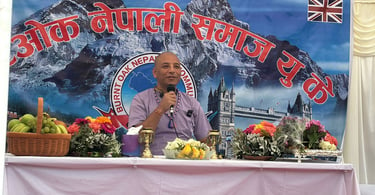A Spiritual Afternoon with His Grace Rupeshwor Gaur Das at BONC
FEATURED

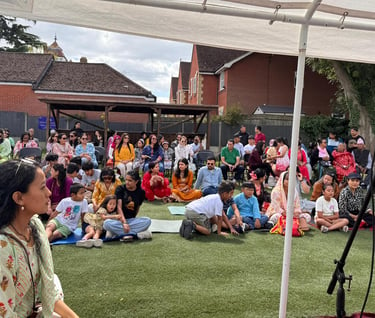
His Grace Rupeshwor Gaur Das said. “When you taste something delicious, you don’t say ‘mero jibro paryo’. You say ‘man paryo’ — my mind liked it. When you smell something wonderful, you don’t say ‘mero nak paryo’. Again, you say ‘man paryo’. Why? Because it’s not the tongue or the nose that truly decides — it’s the mind. The senses collect the data, but the mind is the judge. That’s how powerful it is.”
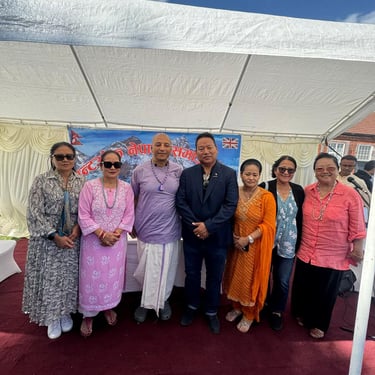
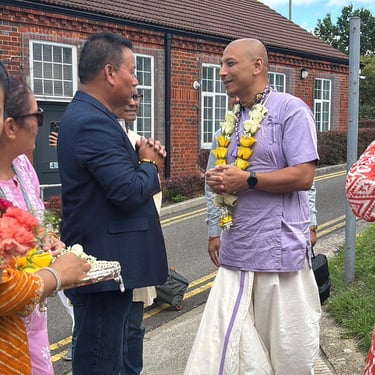
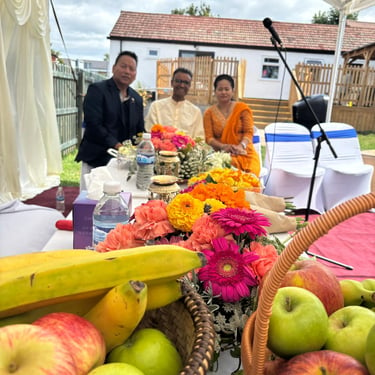
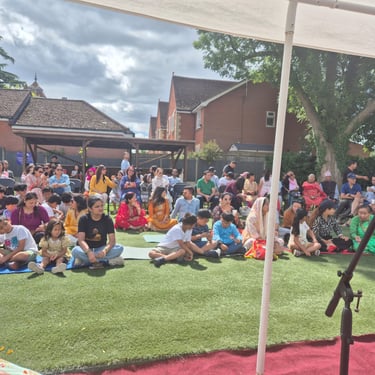
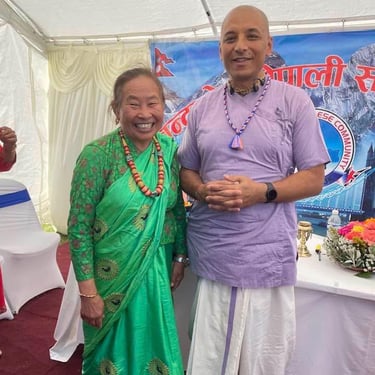
Yesterday, 09/08/2025, we had the pleasure of listening to His Grace Rupeshwor Gaur Das, a renowned spiritual teacher, mentor, and guide. With an engineering background and a long journey of learning and service in the field of spirituality, his teachings blends wisdom of ancient traditions with practical solutions for modern life. He also serves as the Secretary of ISKCON Nepal and the GBC Zonal Supervisor for ISKCON Thailand.
The event was hosted by the General Secretary, Helisha Gurung, and officially opened by Khamir J. Gurung, Chairman for Burnt Oak.
His Grace began by reflecting on religion, spirituality, and tradition, noting how we often mix them together — much like dal bhat tarkari and chutney — even though each has its own distinct meaning and purpose. He explained the difference:
Spirituality is self-exploration (like science).
Religion is devotion.
Tradition is what a community accepts as normal.
He emphasised that spirituality should be a compulsory part of life because it is about identity and self-understanding. Spirituality, he said, is an exploration of the mind — asking “Who am I?” — and understanding the mind itself.
To illustrate the power of the mind, he shared everyday examples:
When we taste something delicious, we say man paryo (“I liked it”) — not jibro paryo (“the tongue liked it”).
When we smell something pleasant, we say man paryo, not nak paryo (“the nose liked it”).
This, he explained, shows that spirituality begins with the mind (man). The mind is incredibly powerful but also very difficult to control. Quoting a shloka, he recalled Arjun telling Krishna:
“I can change the direction of the wind, but not the mind.”
He also spoke about self-protection through the 7 chakras, noting that if certain points are left uncovered, it could leave us vulnerable to harm from other entities.
During the Q&A session, he explained the difference between Bhagawan and Devis:
Devis are like department heads — for example, the head of rain (Indra), the head of education (Saraswati) or the head of wealth (Laxmi).
Bhagawan is all-powerful and almighty, above them all.
His Grace also spoke about the journey from dependence to independence within families. Young children rely entirely on their parents, but as they grow, they should learn to manage their own lives and finances responsibly — becoming “heroes” who can stand on their own feet while still supporting others. He emphasised that independence is not about neglecting family, but about taking personal responsibility, avoiding discrimination, and working together interdependently — through mutual communication, cooperation, and understanding.
The key message was clear: live harmoniously, cooperate, and maintain strong family bonds.
Schedule a consultation with Gaur Das and the team and make things happen - info@reta.world

